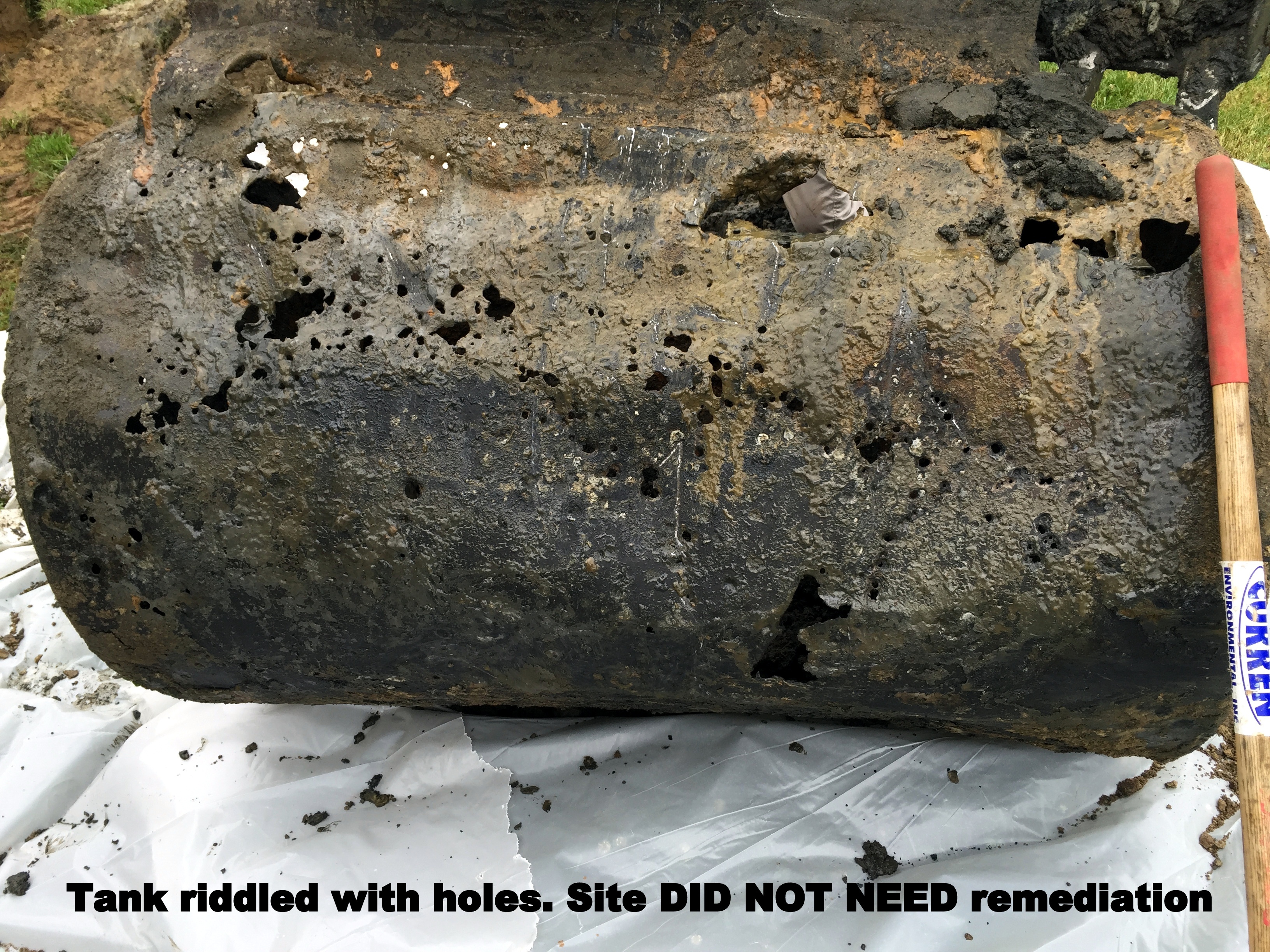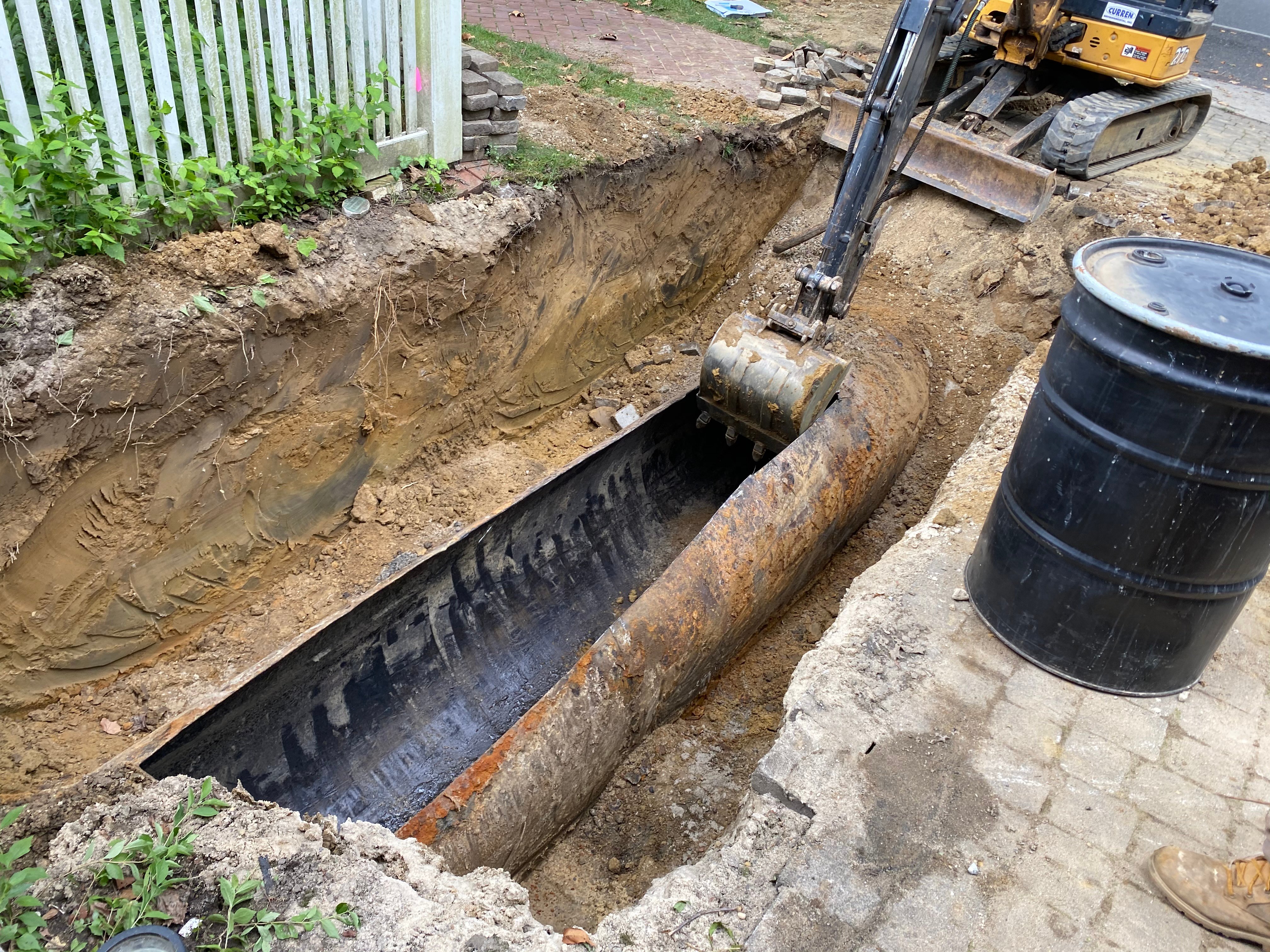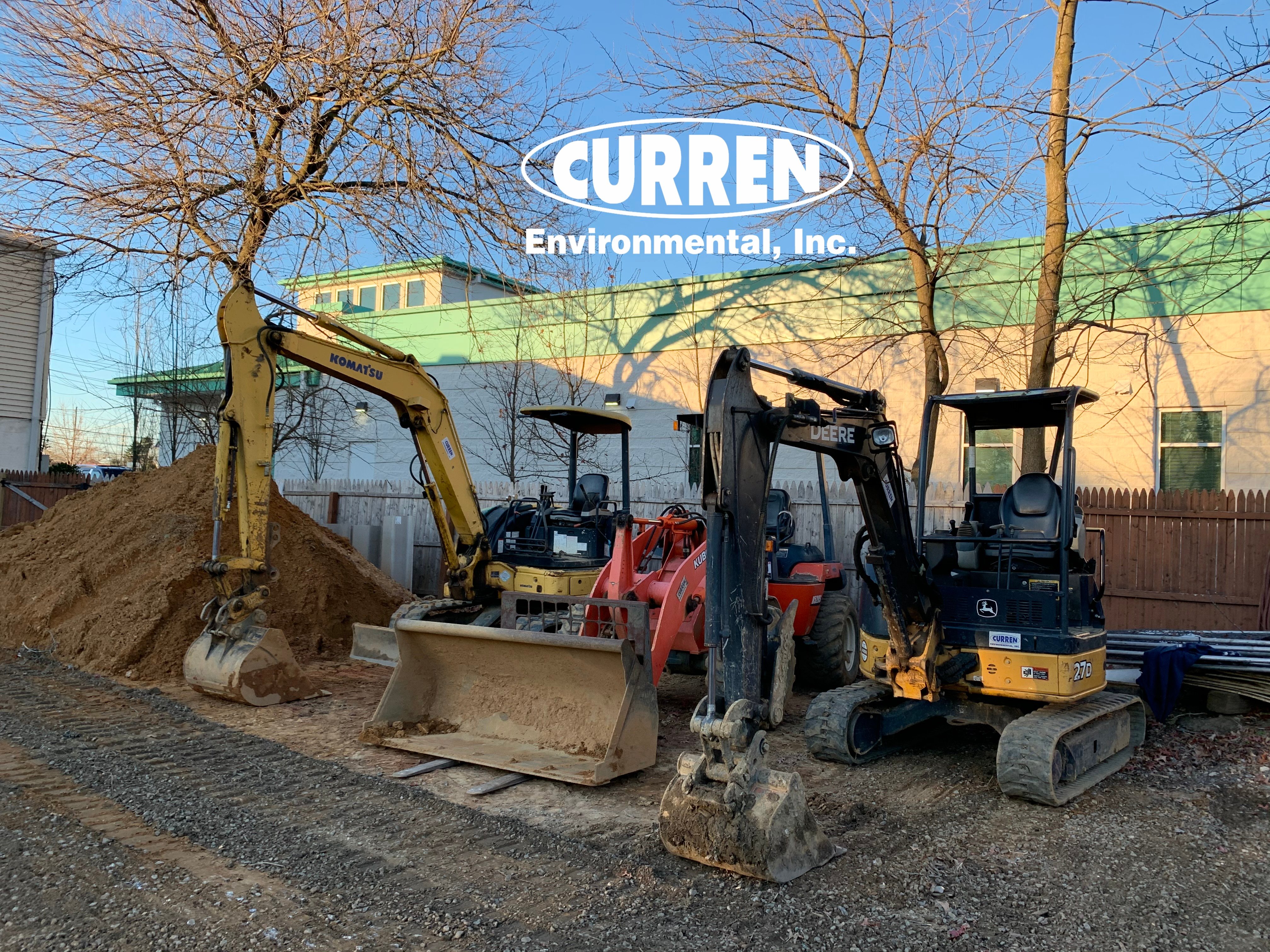What do you do after a tank leaks?

Let's agree that any Underground Storage Tank (UST) removal can turn into a leaking tank removal. Unlike your car brakes that squeal when the brake pads are worn or a smoke alarm chirping when the battery is low, a tank is silent when it starts to leak underground.

So should you be surprised when you remove the tank and it has holes in it? No, you shouldn't, but you also should have had a conversation with the tank removal company regarding this possibility. So while you may be praying and hoping you do not have a leak, the removal firm knows it is a possibility and to "manage expectations" they should discuss with you the possibility.

If you hired the right company to remove your tank, after you find out the tank leaks you should be waiting about a week for the soil test results to be completed by the laboratory to determine if oil levels in soil are above (bad) or below (good) acceptable levels.
For Delaware and Pennsylvania, you would have 2 to 3 soil samples acquired based on tank size. In New Jersey, you would have 5 to 6 soil samples acquired.
You see oil levels can be acceptable just like cholesterol levels, just like a tumor can be benign.
Sadly more often than not when people get their tank removed, soil samples are not acquired, so when a leak is noted, companies will decide that of course, it's contaminated, and you must remediate when in practice you do not unless testing shows levels above standard. That is a fact.
So what is your leaking tank Game Plan?
You remove the tank and there are holes in the tank, now what? (Note that even pin holes are not a positive sign). Well if you were prepared ahead of time, you will be acquiring soil samples so you can quantify the concentration of oil that leaked into the ground. Every state has an acceptable and unacceptable concentration of oil that can be left in the ground. So in short you proceed with the original plan just like if the tank didn't leak, you acquire soil samples and backfill the hole and remove the metal tank from the ground.
Why do you backfill the tank excavation? Well, you are paying for it as part of the removal, and you do not want to leave a hole open for liability reasons. Trust me it takes 7 minutes to remove the dirt in the future if you find you have to remediate it. The most important reason to backfill is that no one knows if the soil is clean or dirty and if you leave it open you will psychologically lean towards thinking it's dirty and you should remediate it. Companies count on that.

Ok, a week goes by and the test results are in compliance, great. Depending on the state, a report will have to go to the state environmental agency, but you also want the report saying no remediation is required. That is a unicorn and rainbow leaking tank story.
Boom, the results come back and results are above standard, you must remediate. Your first thought is, it's not too early to start drinking, just kidding. Your first thought is what is the cost to clean up the leak. Answer nobody knows. Finding contamination is like finding cancer, you have to figure it how far it has spread. In cancer you do a biopsy, in environmental you do borings. The photo below shows boring Curren completed to define the vertical and horizontal extent of the tank leak.

The soil borings are completed to define both the depth of contamination. (does the oil go to 8', 12', 16' deep?) and then you define the horizontal extent of the contamination. (does the oil go 5' to the South, 10' to the North). You need to determine the area so you can develop costs to remediate. If the contamination extends under a driveway, you need to remove concrete and recycle it.

Almost every oil tank remediation will entail removing the contaminated soil. Sometimes this means going under patios, lawns, driveways, and even the neighbor's yard. You may have to take down a fence or deepen the foundation of the house to remediate the leak. To say we have seen a lot would be an understatement





Curren Environmental is one of the oldest companies performing oil tank remediation. We are known for our professionalism and for getting the job done.
If you have a question regarding tank remediation call our office and speak to one of our professionals.
We offer a free initial consultation.
888-301-1050


